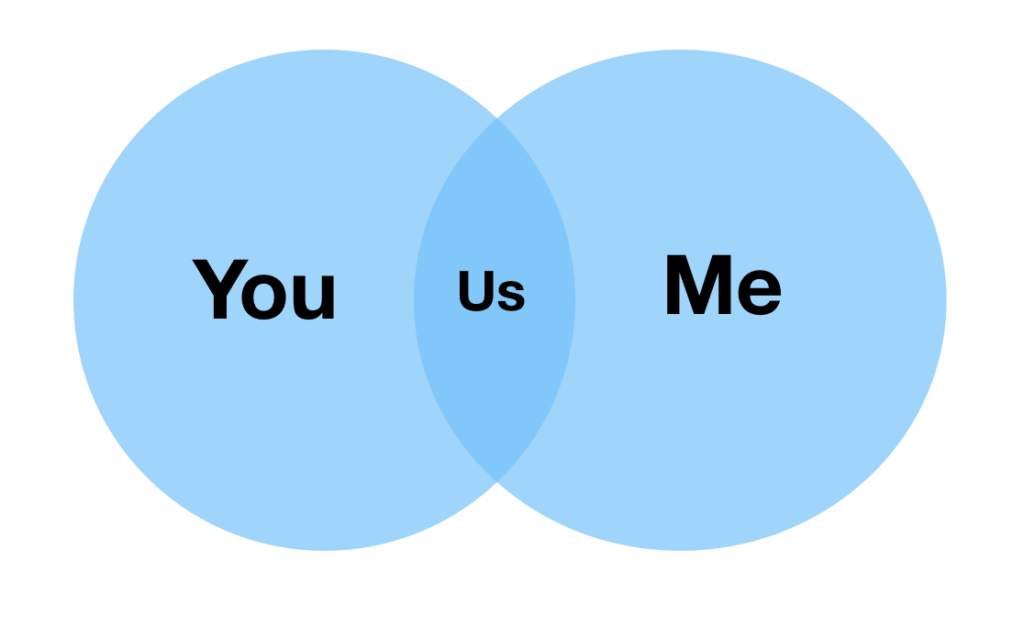
Have you ever noticed that your needs aren’t getting met but you are afraid to even explore what those needs are for fear that there is no possible way on earth that they will ever be met?
Yeah me too! Here’s how it was for me. I love meeting the needs of others- my children, my partner, my clients, my friends. On top of helping others, I still have to run my life and it can be a lot. Running the house, running the business, running the family. Sometimes I forget about myself in all of that doing for others. I only figure it out when the wheels are about to come off. Then after looking back I realize that I have been saying yes to way too many things. I notice that I am not slowing down enough to notice my own needs.
It’s complicated. Personally, I get so much out of helping others and I think underneath it might be fear of sitting still or fear of being alone. It feels like a dilemma that I keep setting up for myself. My number one goal is peace of mind. Ahhh…that feeling of ease, calm, when my body feels relaxed, my brain slows down and whatever I am doing is exactly perfect for me. It could be going to the grocery store or watering my plants or cooking. I’m not needing to rush through it and get to the next “thing” and I feel the ease and comfort of just being in the moment. Presence.
In my practice with couples I talk about the me and you circle. It looks like a Venn diagram. The circles overlap and create an “us”.

The “you” represents your partner. The “me” of course represents yourself. Each circle has a clear boundary. Inside the “me” circle is all that is important to yourself and who you are and what you value. And in the “you” circle is all that is important to your partner. How can I maintain who I am and clearly be who I am INSIDE the relationship? It’s kind of tricky. Sometimes we get trapped into thinking that the goal is to make the “us” part of the diagram larger and larger until it becomes the only circle. But if we do this we lose sight of the me and the you. It just disappears. It is important to keep in mind that you need time for YOU and the same for your partner. This is where boundaries come in.
Feeling like you might need clearer boundaries?
First ask yourself, what am I feeling? Exhausted, resentful, angry, disappointed? These feelings can be a cue to us that something inside our inner world is not okay and needs to be considered.
Recently I had a woman in my office in her mid 30’s who was upset with her husband for not being more aware of her needs. She felt taken advantage of, underappreciated, and exhausted from taking care of their three small children. Not only was she taking care of all things family related, she was taking care of all things husband related. As we spoke she realized that she was wanting him to gain insight into himself and she was the one trying to do it for him. But she couldn’t figure out how to help him gain the insight that she felt like he needed in order to better understand her needs. I could really relate to her dilemma. She wanted support and to feel special and taken care of in her relationship. She was looking to her husband to do that. That doesn’t seem unreasonable does it?
At first glance no it doesn’t! But when we started unpacking what was happening we started to realize all of the things she is doing for him instead of letting him do the things he needs to do. She was feeling resentful for all that she was doing for him and for not receiving what she expected in return. When we explored the feelings a little deeper, she realized she was angry with herself for not putting herself as a priority and then getting upset with him for doing the same thing. Generally we are upset about something our partner is doing, which means there is a boundary issue that needs to be explored. These are all common feelings when we don’t have clear healthy boundaries set for ourselves.
Next ask yourself: “what do I need?”
We work on giving to our relationships. We compromise and make a commitment to be there for others, but sometimes this can cause us to forget our own sense of self. I often ask my clients “what do you need?” and it is often a difficult question to answer. Sometimes it’s easier to focus on what our partner (or other family members) need. This is especially difficult if we are taking care of elderly parents, children, or others who need a lot of help. However, it is in these types of situations that it becomes critically important to remember that you have needs too.
When I ask myself “what do I need?” I usually think to myself that I am exhausted and need rest. Rest from work, rest from chores and errands, rest from expectations. Just down time. When I asked the wife of one of the couples I work with that question she said she needed reassurance that her family will be okay. Our needs will all be different, and that is OKAY. Go deep inside yourself and try and answer the question of “what do I need?” and when you find the answer, pay attention to it!
How to set boundaries
Setting healthy boundaries is a skill that many of us do not learn in our early relationships. The good news is that we can learn how to set healthy boundaries at any point in our lives.
- The first step to setting boundaries is to know what you feel and make some space for the feelings. Are you feeling frustration because you want more from your partner? Noticing anger? It might be difficult to label or identify the feeling, maybe it’s a sensation in your body. Just notice it, and make some space for it. We are often too quick to try to push our emotions aside or try to contain them. The truth is that the emotions carry important messages about what is important to our inner world. Learning to be with the emotion, make some space and listen to what it is telling you is crucial to the next step in setting boundaries: identifying our needs.
- The second step in setting boundaries is identifying your needs. Okay so you have identified that you are feeling overwhelmed and stressed and also frustrated. Let’s look at your needs. What are these emotions telling us? Try to stay inside your inner world and resist the urge to focus on what your partner is or isn’t doing. What do you need? Do you need to feel supported? …Need to feel understood? …Need rest? Let’s go with the example of needing more space for yourself. In the case of one of my clients, she was giving all of her energy to her children and her husband so she wasn’t able to give any energy to herself. After she took a step back to evaluate what SHE needed, she discovered that she let exercise fall to the bottom of her priority list. She discovered she wasn’t taking care of herself in the ways she knew she needed.
- The third step is taking action on meeting your needs. Once you are able to listen to your emotions and understand your own needs, you can more effectively communicate these needs to your partner. Having explored your feelings and identified your needs will allow you to have a honest conversation that can pull your partner closer as opposed to pushing them away. We want to avoid starting any difficult conversation with an accusation, like “you never help me out around the house” or “I don’t know why you can’t seem to find time to spend with me or the kids.” Instead, build on the steps we have worked on here. A conversation might look like this:
“I have noticed that I have been a little grumpy lately with you and the kids, I’ve been feeling overwhelmed by work and all of the family activities and frustrated that I haven’t allowed myself time to work out. I’d like your support and encouragement for me to head to the gym after work a couple of times a week. How would you feel about getting dinner started or picking up dinner on those nights I go to the gym?”
Setting boundaries requires being able to gain self-awareness about what is happening inside of ourselves and about what we need and then being able to express those needs in a healthy way to our partner. It is not an easy task to gain self-awareness or to communicate our needs to our partner, but it is a worthwhile endeavor as it can help bring balance and mental clarity to your life when your personal needs are met.
Are you interested in getting some help in exploring what is happening for you and how to go about setting boundaries? Check out The Guide to Rewire your Relationship. Give me a call at 817-307-8725 or check out my website for more information on how to schedule an appointment at DrLeeLeGrice.com.
